














BY
B R I D G I N G T H E T H E R A P Y G A P O V E R S U M M E R B R E A K
C re a te a Su m m e r O T R o u tin e
Incorporate OT-based activities into daily routines such as sensory play fine motor activities and self-care tasks
Simple activities such as cutting with scissors, handwriting practice, or playing with textured materials can reinforce skills learned during the school year Creating sensory-rich experiences, such as playing on a playground or swimming, can also provide optimal sensory input


ccupational therapy services in the school setting can be crucial to allow students to independently access their school curriculum and participate in classroom activities
These services provide support from building fine and visual motor skills to assist with handwriting, to providing sensory accommodations for optimal learning For many students it can be difficult to retain skills learned over summer break Without continued support skills may regress, making the transition back to sc hool challenging
Explo re C o m m u n ity R e s o u rc e s
Summer camps or recreational programs can provide structured support that integrate occupational therapy principles Library-based groups can provide small group settings to engage in sensory activities Additionally, outpatient therapy clinics often offer summer programs to help students continue working on their goals in a fun and engaging environment
C o lla bo ra te W ith Sc h o o l
Th e ra pis ts
School-based therapists can provide transition resources, such as home exercise programs and recommended activities Parents and caregivers can coordinate with school therapists to develop a summer plan to ensure the retention of essential skills before returning to school in the fall

With these strategies families can help bridge the gap to ensure continued growth
1ds Count Therapy offers a variety of summer camps and programming to assist with skill retention for students over the summer Camps include Ready Set School! for children preparing to go to school Little Readers & Writers which promotes reading and handwriting skills, and Social Group which assists with social skills, making friends, and problem solving K1ds Count Therapy also offers summer boost services to provide summer-only speech therapy occupational therapy or mental health services to help children retain skills and prepare for a smooth transition back to school

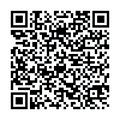


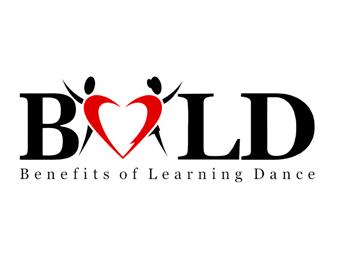

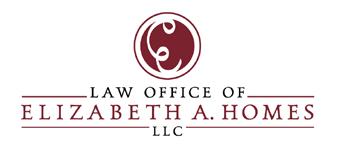

• Pages 10-12 Featured Individual: Meet Ayden Henley
• Page 16 Her HeartSpace: Empowering Autism Moms to Thrive, Not Just Survive
• Pages 18-19 Sponsor Spotlight: Elizabeth A. Homes, LLC
• Page 20-21 Learning to Speak with Her Eyes
• Pages 22-23 Nonprofit Spotlight: Benefits of Learning Dance (BOLD)
• Page 24 Chapters of Change
• Pages 26-27 What Did You Say?
• Pages 28-29 Understanding an Audiogram and Hearing Test Results
• Pages 30-31 Turning Pain to Purpose: Frontida Community Living, LLC
• Page 32 Sensory Blurb!
• Pages 34-35 Single Mamas Seen: Meet Beth Heiny
• Pages 36-39 Local Events
OWNER/ADVERTISING INQUIRIES Jamie Olson jamie.olson@n2co.com 248-882-8448
the QR Code to Subscribe or Nominate:
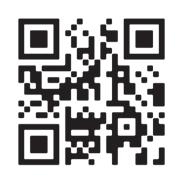

UNIQUELY YOU INDIANA FACEBOOK PAGE https://www.facebook. com/UniquelyYouIndy (LIKE & FOLLOW US)


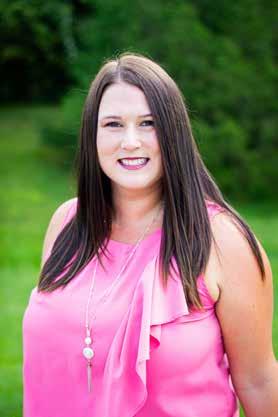

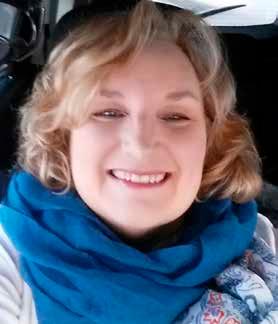
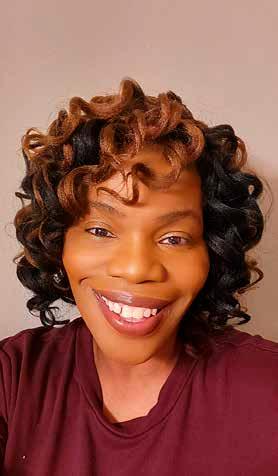

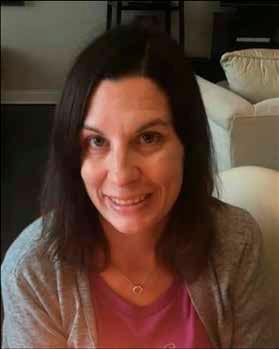



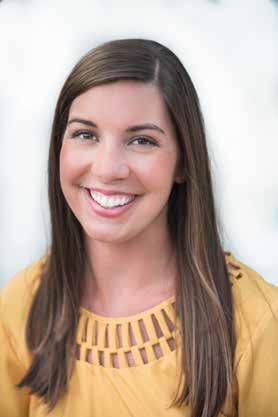





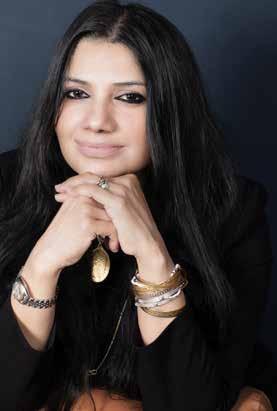

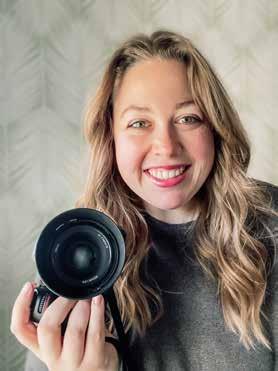




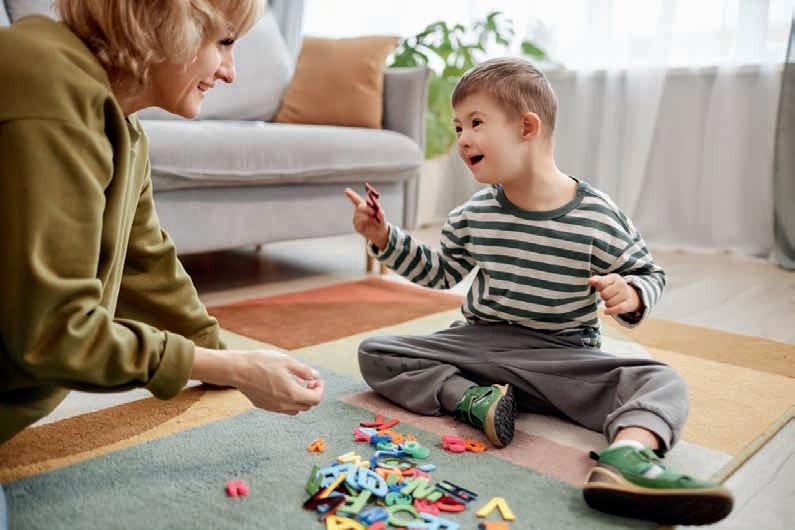


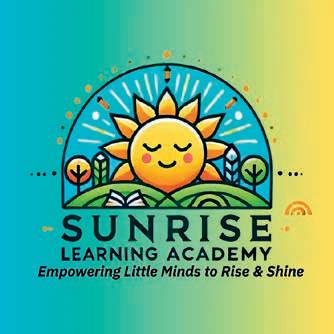
317-977-2375
317-676-4222
800-609-8448
877-241-8144
800-545-7763
800-545-7763
800-622-4968
888-673-0002
800-403-0864
317-232-7800
317-925-7617
877-511-1144
317-466-1000
n2co.com
Celebrate. Connect. Impact. © 2025 The N2 Company, Inc..
Arc of Indiana www.arcind.org
Autism Community Connection www.autismcc-in.org
Autism Society of Indiana
Blind and Visually Impaired Services (BVIS) Bureau of Developmental Disabilities Services (BDDS)
Bureau of Rehabilitation Services (BRS) Deaf and Hard of Hearing Services (DHHS) DHHSHelp@fssa/in.gov
Disability Determination Bureau Division of Aging (IDA) Division of Family Resources (DFR) Division of Mental Health and Addiction Down Syndrome Indiana
Early Childhood and Out of School Learning (OECOSL) Easterseals Crossroads www.easterseals.com/
911
800-545-7763
317-232-0570
844-323-4636
317-233-4454
317-232-7770
812-855-6508
317-233-1325
844-446-7452
855-641-8382
800-332-4433
800-457-4584
317-232-7770
988
800-772-1213
800-772-1213
877-851-4106
317-871-4032
800-545-7763
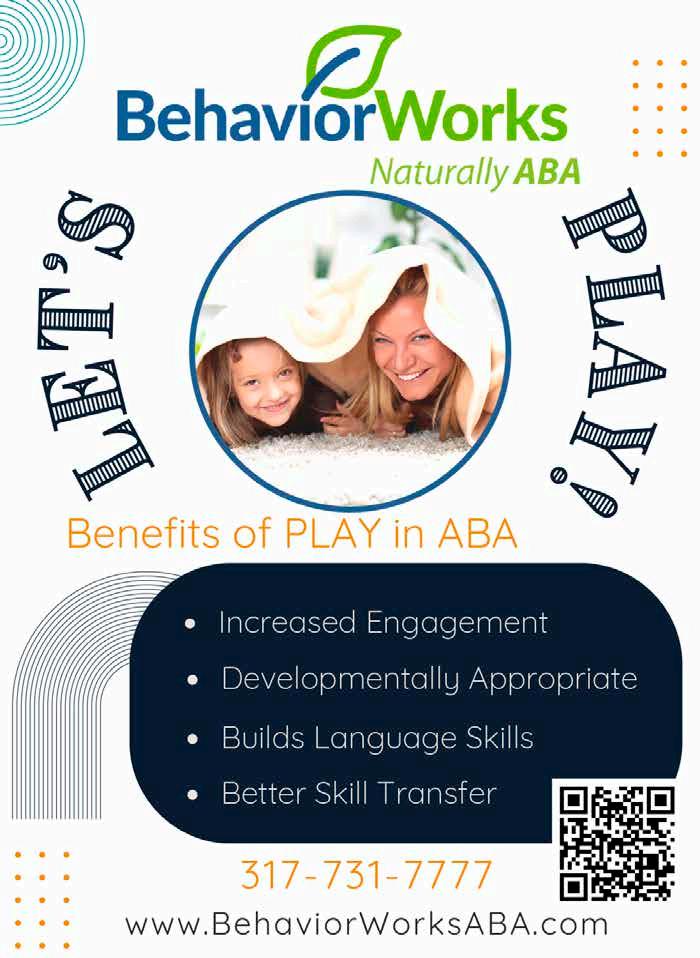
Emergency First Steps
Indiana Department of Education: Office of Special Education – www.doe.in.gov/specialed
Indiana Family to Family - www.inf2f.org
Indiana Family and Social Services Administration (FSSA) – www.in.gov/fssa/index.htm
Indiana Governor’s Council for People with Disabilities (GPCPD)
Indiana Resource Center for Autism
Indiana State Department of Health
Indiana Statewide Independent Living Council (INSILC)
Indiana Works
INSOURCE – http://insource.org/
Medicaid Disability
Medicaid Waivers
National Alliance on Mental Illness
Social Security Administration (SSA)
Social Security Disability Insurance (SSDI)
Special Education Questions
United Cerebral Palsy Association of Greater Indiana Vocational Rehabilitation Services (VR)


Scan to view past digital copies, find resources, share a story or learn more about being involved.
JAMIE OLSON: Uniquely You! Magazine Area Director jamie.olson@n2co.com 248-882-8448

Scan to view the past issues of Uniquely You! Indy
DISCLAIMER: Any articles included in this publication and/or opinions expressed therein do not necessarily reflect the views of The N2 Company d/b/a N2 Publishing but remain solely those of the author(s). The paid advertisements contained within the Uniquely You! magazine are not endorsed or recommended by The N2 Company or the publisher. Therefore, neither The N2 Company nor the publisher may be held liable or responsible for business practices of these companies.
NOTE: When community events take place, photographers may be present to take photos for that event and they may be used in this publication.
We’re proud to showcase businesses that share our commitment to fostering local connections. When perusing our pages, keep an eye out for the “Local Sponsor” icon to identify articles highlighting these valuable partners. Please note that businesses profiled may have provided free products and / or services for the review.
Uniquely You Indy a free monthly magazine for and about our local special needs and disability communities. Each issue shares inspiring stories, critical resources, and recommended businesses that make Uniquely You the ultimate go-to guide for special needs families in Indiana.
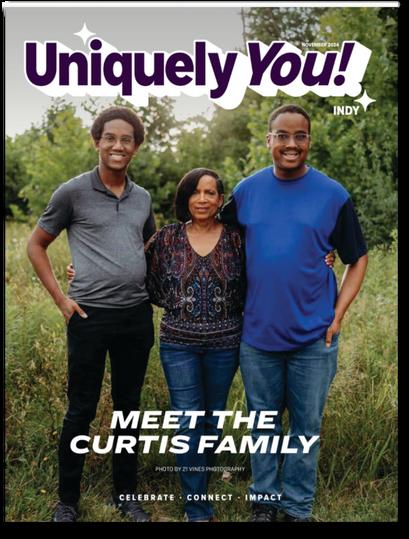
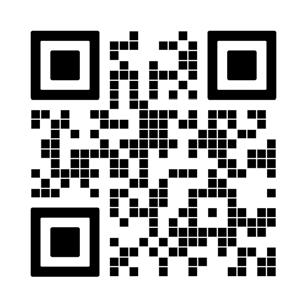
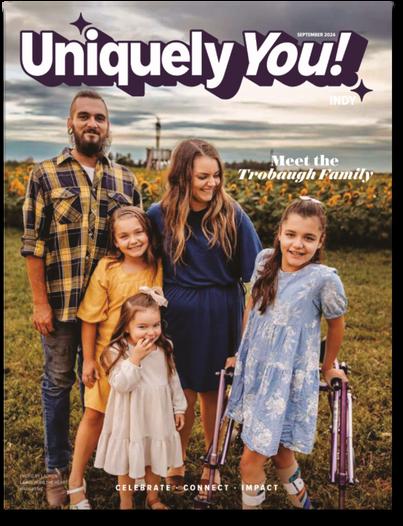
“Stories of families that connect us. The sharing of our vulnerabilities as parents, families. THAT’S what makes your magazine special.”
-
Kate Miller, Reader
“When you sponsor Uniquely You magazine, you’re not just promoting your business; you’re providing a vital resource for families of children and adults with special needs. This magazine serves as a roadmap, guiding these families through the complexities of their daily lives.”
Karah Powell, Advertiser
The following is from a series of interviews I did with Ayden Henley, who is on the autism spectrum, and has a notable history of depression, anxiety and ADHD.
I am Ayden’s behavior consultant through the Medicaid Waiver program and have worked with him for about 8 years. What makes Ayden’s story unique is just how far he has come over the past few years. To be honest, the first few years I worked with him were extremely challenging as he was very difficult to work with. He fought “everyone” on “everything” and wanted nothing to do with behavior services. This all started to change midway through high school when he began wanting to work on his behaviors and mental health issues, and to strive to achieve academically. I think he finally realized that he was intelligent after years of telling himself and others the exact opposite. Some of his history of non-compliance and self-sabotage was due to a lack of trust in people due to some extremely rough family trauma and hardships. I just had to spend lots of time with him to develop trust, and I am so glad I did, as now he is an absolute joy to work with. I am very proud of the man

Ayden has become, and I truly believe he is going to go on to do great things for this world.
My name is Ayden Henley, and I am a 19-year sophomore student at IU Indianapolis, in the school of sciences. My mom lives in Sheridan Indiana, but I also spend a lot of time with my grandparents, who live in Noblesville, and when I am not on campus, I alternate staying between the two locations. I am a graduate of Sheridan High School. I don’t currently work as I put much of my time and energy into my academics, but I do have several hobbies and activities that are important to me. I love to work out and try to go to the gym at least 3 to 4 times per week. I am also involved in a campus crusade group, and we do retreats and other social activities. I also like to go out to eat, read, and play video games, the latter being a good release, but sometimes an activity that I obsess over, taking too much of my time.


Growing up on the autism spectrum has been challenging for me. When I was younger I did not know how to behave in social situations. Some other challenges I have had are that I grew up poor, with limited family resources, and my dad left us when I was young. We also lost my baby sister unexpectedly when she was a baby, which left behind a lot of traumas for my family to deal with. But even though we were poor, I was provided with lots of love and support, and I had everything I needed.
Even though I had struggles throughout much of academic history, middle school was certainly the worst for me, as I was often anxious, and did not feel like I fit in. Due to these insecurities, I often acted out to get attention and became known as the class clown. I also
felt that I was “seen” as a special needs student, so this further distanced me from my peers, led to social isolation, and lots of self-flagellation. Some of it was my negative beliefs about what others thought of me and my own selfconsciousness, and some of it was the behaviors of others. I thought that if I acted immature and “crazy” I would get lots of attention and others would like me. What I got was stigmatized. Being from a small school, “word got around” and several teachers did not want me in their class. I got suspended on several occasions and eventually my schedule was reduced to a half day.
Additionally, my grades were “terrible” in middle school and my freshman year of high school. During this period, I had no goals, and I just didn’t care.
And although I wanted social connection more than anything, I did everything in my power to push others away, which led to feeling lonely much of the time. It was an important period for me to learn social skills and gain connections, but I was always in trouble. In my mind I saw myself as the “special kid”, and I tried to fulfill these expectations. These behavioral struggles continued through my first two years of high school, and I ended up getting very depressed. I told

myself over and over that nobody liked me, so I shut down and didn’t socialize with anyone. I also had a massive fear of rejection, so I did not even try to get to know anyone on a personal level.
Then, during my junior year, something clicked. Although most of my grades were not good, a turning point for me came when I developed a love for the sciences. A love that has been with me ever since. I attribute much of this to my biology teacher who helped spark and develop this passion. I started putting everything into my science classes and with time this filtered over into all my classes.
I started realizing, for the first time in my life, that I was intelligent, and I started pushing myself to achieve academically. I also started listening to my behavior therapist and decided to put myself out there. Even though I was deathly afraid to socialize, I decided to try out for two high school plays and ended up getting
parts in them. My reasoning was that activities like these would be one of the most challenging things I could do as it would put me in a position of vulnerability where I would have to not only socialize, but perform in front of others, something I dreaded my entire life. Participating in the two high school plays, first as a narrator my junior year, and then as a character in Frozen my senior year, seemed to be a springboard for greater successes to come.
My academics greatly improved my junior year and things “really” improved for me during my senior year. I became more open to socializing with others and my new identity was built on success, and not being the class clown and troublemaker. Around this time, I also decided to join a D & D club, (Dungeons and Dragons), a social club endeavor that includes role-playing games, and it helped reduce my anxiety due to being in the presence of “like-peers”. Overall, it became a safe place for me, and I am glad I found it.


Despite the rough start to school, I ended up graduating with a 3.5 GPA, which was even more significant since I did not do much prior to my junior year. This was good enough to get me admitted to the school of sciences at IU Indianapolis. I don’t think anyone could have predicted this outcome during most of my life, even myself. My senior year I was nominated for “Blackhawks Taking Flight” by my teachers. The award goes to the student who made the biggest strides with academics and behaviors of everyone in their class, and I ended up winning the award, which really boosted my selfconfidence even further.
The support I have gotten from my family has been instrumental to my success. My grandparents have supported and lifted me up. I used to get so mad at my grandparents because they pushed me to make better decisions, to grow as a person, and they held me accountable for my actions. I realized they were there to help me, and I thank them every day for this. I also would not be where I am without the help of my behavior consultant, who has been with me for eight years. A focus on my faith has also made a difference in my life as I have
dedicated myself to growing spiritually and to following biblical teachings. Having faith in something bigger than myself has given me joy and brought me out of years of depression. I have realized that there is more to life than pursuing “superficial” things. This has helped me to love myself and to care about others. It has also helped me with self-control. Although, I have surprised myself and many others I still have a way to go. I have battled with social anxiety while at college, but I continue to make slow progress. I also had no idea that college academics would be as challenging as it is, and that there would be so much homework. There is also a part of me that still feels like that middle school kid that no one likes, or I believe that people will notice there is something wrong with me and figure out that I have


autism. I struggle with consistency with mood and behavior, and my self-image is always a concern. I am reluctant to start conversation with others due to extreme self-doubt, which results in few meaningful relationships with others my age, and I currently don’t have one good friend at school. I stick to interacting with adults I am comfortable with, such as family members, my behavior consultant, and people from my church. I also struggle with events that are presently going on right now, especially others’ strong opinions on politics and world events, and I am afraid to speak up fearing I might offend people. I have learned to cope better with my social anxiety through the years, but I still feel like people don’t like it when I talk and worry that they are judging my performance. I worry that everyone can tell I am on
the autism spectrum or that there is something else wrong with me. But despite my self-esteem issues and social fears, I have overcome many things in life due to thinking differently about myself. I also must remind myself of how far I have come and that I would not be where I am right now if I hadn’t made such drastic changes. I no longer hate myself as I did at one time, and I know I am not a bad person. The support of my family and others, and years of behavior therapy have helped me with self-awareness, confidence, and impulse control. I feel optimistic about my future, and I know someday I will have a career in the sciences and hopefully go on to do big things.

The best way to get to know someone is to being with a conversation, in order to learn about them and their dreams. Our case managers focus on partnering with individuals, as well as collaborating with their families and teams, to seek appropriate support and creative solutions.


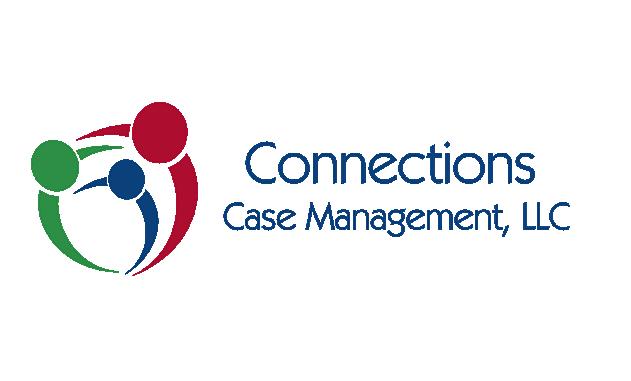


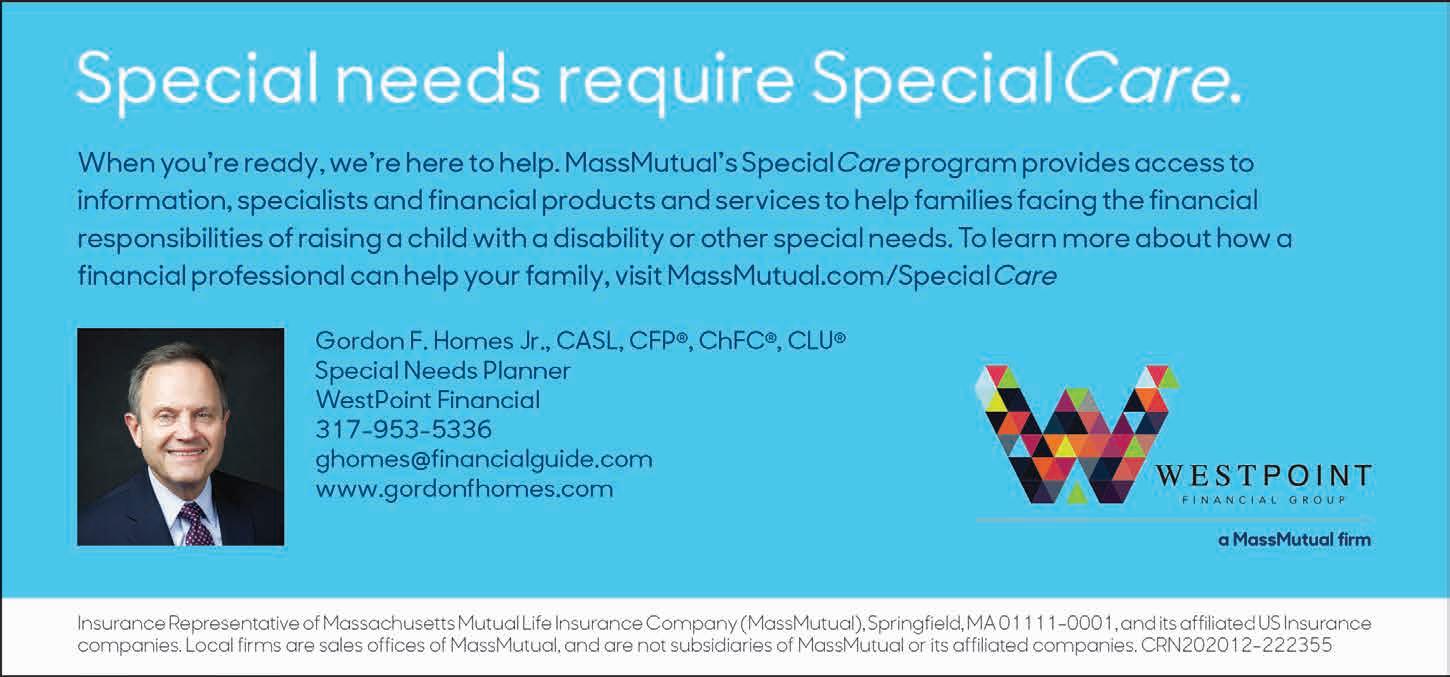
- Michelle


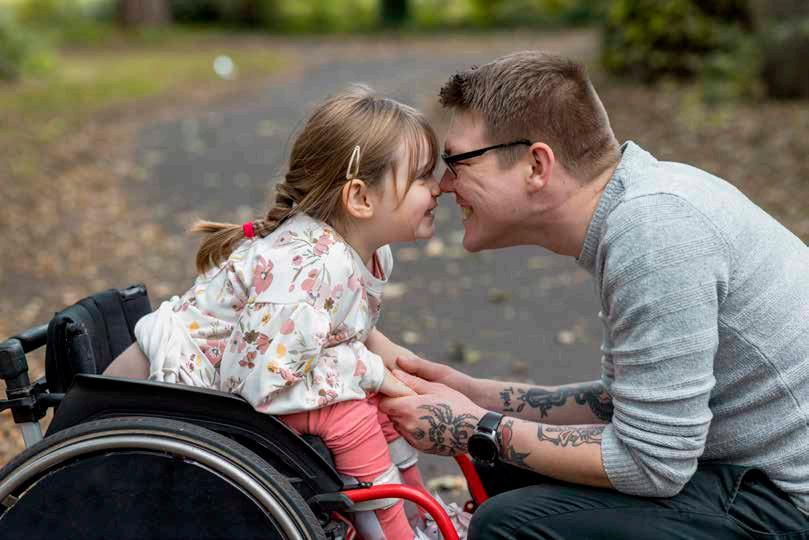






CELEBRATING AWARENESS MONTHS!
June - Father’s Day (Deadline April 20th)
• Aphasia Awareness
Helen Keller Deaf and Blind Awareness Week
• CDKL5 Awareness
• Tourette Syndrome
• Fragile X Awareness
Arthrogryposis Multiplex Congenita
July (Deadline May 20th)
Disability Pride Month
August (Deadline June 20th)
• Spinal Muscular Atrophy Awareness Month
• National Dog Day
• Medicalert Awareness Month

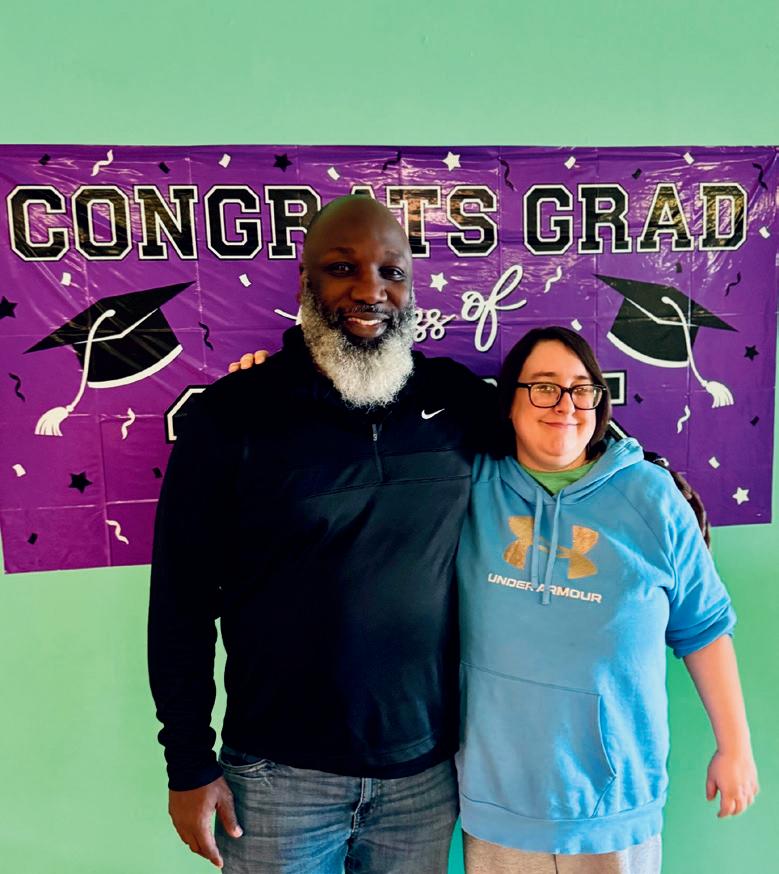





BY TANYA MALIK, MOT, OTR PEDIATRIC OCCUPATIONAL THERAPIST , AUTISM MOM AND TRANSFORMATIONAL COACH
Motherhood is often described as a journey of love, sacrifice, and resilience. But for mothers of children with autism, that journey is filled with unique challenges—ones that test our strength in ways we never imagined. I know this firsthand.
Seventeen years ago, when my son was diagnosed with autism, my world shifted. Suddenly, my life was filled with therapy sessions, meltdowns, sleepless nights, and endless advocacy. I poured everything into my child, determined to help him make progress. But in the process, something unexpected happened—I lost myself.
Like so many autism moms, I ran on empty. I told myself, I’ll rest later. I’ll take care of myself when things settle down. But things never truly settled. The years passed, and I realized I had been surviving, not living.
Then came a turning point. Burnout hit me hard, and I realized that in order to be the mother my children needed, I had to start caring for myself too. I had to reclaim myself—not just as a mother, but

TANYA MALIK
as a woman, a person, a soul deserving of rest, love, and joy.
The Birth of Her HeartSpace

This awakening led me to create Her HeartSpace: Holding Moms Close on the Autism Journey. A movement dedicated to supporting mothers like me. It’s a space where autism moms can feel seen, understood, and empowered. Through coaching, self-care strategies, and a strong sense of community, Her HeartSpace helps moms fill their own cups so they can continue pouring love into their children.
Why Self-Care is a Necessity, Not a Luxury
For autism moms, self-care often takes a backseat. We convince ourselves that our child’s needs must always come first. But here’s the truth: when we neglect ourselves, we can’t show up fully for our children.
Self-care isn’t about expensive spa days or grand getaways. It’s about small, intentional acts like stepping outside for a breath of fresh air, savoring a warm cup of
tea, or allowing ourselves to rest without guilt.It’s about reminding ourselves that we are not just caregivers; we are human beings who need care, too.
You Are Not Alone
Mothers of children with autism are some of the strongest women in the world. We advocate, we love fiercely, we endure. But we are also human. We need support. We need connection. We need to know that we are not alone.
Her HeartSpace is more than just a resource; it’s a lifeline. It’s a space where autism moms can gather, share their struggles and victories, and learn how to care for themselves while caring for their children.
To every mother reading this: You are enough. You are worthy. You are not alone.
If you’re an autism mom longing for support, community, and self-care, I invite you to join Her HeartSpace. Together, we can create a world where autism moms don’t just survive – they thrive.
Tanya Malik is an occupational therapist, autism advocate, and founder of Her HeartSpace: Holding Moms Close on the Autism Journey. As a mother to a 19 year-old son with autism, Tanya deeply understands the challenges autism moms face—because she has lived them. Through coaching, self-care programs, and a supportive community, she empowers mothers to prioritize their well-being while navigating the complexities of raising a child with autism.
Tanya’s mission is simple: to help autism moms thrive, not just survive.
Tanya Malik ,MOT, OTR Founder OTSEVA LLCFounder Her Heart SpaceCarmel , Indiana Tanyamalikotr@gmail.com

We’re excited to offer you—or someone you’d like to nominate—the opportunity to be featured in our Professional Expert Spotlight in Uniquely You!
Are you a professional passionate about serving the disability and special needs community? We’d love to showcase your expertise and the impact of your work.
Share your insights by answering any of the questions that resonate with your experience. Once submitted, our team will


Elizabeth A. Homes is a special needs planning and elder law attorney. She has been licensed and practicing law since May of 2014. Her practice at the Law O ce of Elizabeth A. Homes LLC is focused on Special Needs Planning, Guardianships, Elder Law, Estate Planning, and Probate Work. This includes Wills, Powers of Attorney, Advanced Directives, Trusts, Trust Administration, Medicaid Planning, Special Needs Planning, Guardianship, and Probate. She is admitted to practice law in the State of Indiana. We ask "What If?" so you don't have to ask "What Now?"
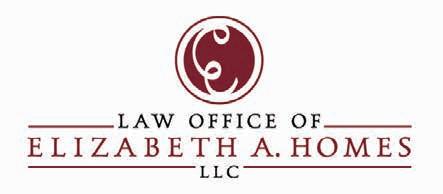


review your responses and reach out if additional details are needed.
Thank you for your dedication and for being a valued voice in this important conversation!
Submit your story here: https://form. jotform.com/250515811454149
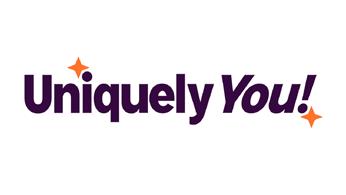


IN THE HEART OF CARMEL, Indiana, the Law Office of Elizabeth A. Homes LLC stands as a beacon of hope and guidance for families navigating the intricate realms of elder law and special needs planning.
Founded in 2015 by Elizabeth Homes, a native of Carmel, the firm is deeply committed to serving the residents of Central Indiana, offering a comprehensive suite of legal services tailored to the unique needs of each client.
A Personal Commitment to the Community
Elizabeth Homes’ roots in Carmel have profoundly influenced her dedication to the community. Her intimate understanding of the local landscape and the challenges faced by its residents has shaped the firm’s mission: to provide compassionate, personalized legal assistance to families with elderly members or loved ones with special needs.
The Law Office of Elizabeth A. Homes LLC offers a wide array of services, ensuring that clients receive holistic support in their legal journeys.
Families with members who have special needs often face uncertainties about the future. Attorney Homes collaborates closely with these families to develop specialneeds estate plans. These plans are meticulously crafted to
provide for loved ones without jeopardizing their eligibility for public benefits. By establishing trusts and other legal instruments, the firm ensures that individuals with special needs receive continuous support, honoring the family’s wishes and securing the individual’s well-being.
When a loved one is unable to make decisions independently, establishing legal guardianship becomes essential. The firm guides clients through this sensitive process, ensuring they can protect and advocate for their loved ones effectively. From filing petitions to representing clients in court, Attorney Homes provides unwavering support, ensuring the rights and best interests of the individual are upheld.
Proactive estate planning is crucial to ensure that an individual’s assets are distributed according to their wishes. The firm assists clients in drafting wills, trusts, powers of attorney, and other essential documents. By addressing potential tax implications and protecting assets from creditors,
Attorney Homes is also a proud member of several professional organizations, including the National Academy of Elder Law Attorneys and the Academy of Special Needs Planners.
Attorney Homes ensures that her clients’ legacies are preserved for future generations.
Aging brings a unique set of legal challenges. The Law Office of Elizabeth A. Homes LLC offers services tailored to the elderly, including long-term care planning, Medicaid planning, and protection against elder abuse. The firm’s compassionate approach ensures that seniors receive the respect, dignity, and care they deserve, while their legal and financial interests are safeguarded.
Navigating the probate process after the loss of a loved one can be overwhelming. The firm provides guidance through estate administration, ensuring that assets are distributed appropriately and all legal obligations are met. Attorney Homes’ empathetic approach offers clients peace of mind during emotionally challenging times.
What sets the Law Office of Elizabeth A. Homes LLC apart is its unwavering commitment to client education and empowerment. Attorney Homes believes that informed clients make the best decisions for their families. She takes the time to explain complex legal concepts in accessible terms, ensuring clients fully understand their options and the implications of their choices.
The firm’s dedication to personalized service means each client receives a tailored legal strategy. Recognizing that no two families are alike, Attorney Homes invests time in understanding each client’s unique circumstances, goals, and concerns. This individualized approach fosters trust and results in legal solutions that truly align with the client’s best interests.
Beyond individual client work, the Law Office of Elizabeth A. Homes LLC is actively involved in community outreach and education. The firm regularly hosts seminars and workshops on topics related to elder law and special-needs planning. These events aim to equip attendees with the knowledge they need to make informed decisions about their futures and the futures of their loved ones.
Attorney Homes is also a proud member of several professional organizations, including the National Academy of Elder Law Attorneys and the Academy of Special Needs Planners. Her involvement in these organizations ensures she remains at the forefront of legal developments, allowing her to provide clients with the most current and effective legal strategies.
While based in Indianapolis, the Law Office of Elizabeth A. Homes LLC extends its services throughout Central
Indiana. Communities served include Fishers, Lawrence, Noblesville, Westfield, Williams Creek, and Zionsville. The firm also assists clients in several other counties outside of Central Indiana, including Allen, Boone, Carroll, Dearborn, Grant, Hamilton, Hancock, Hendricks, Henry, Howard, Jasper, Johnson, Madison, Marion, Morgan, and Tippecanoe. This extensive reach ensures that families across the region have access to quality legal support.
The success and reputation of the Law Office of Elizabeth A. Homes LLC are reflected in the testimonials of satisfied clients. Families consistently praise the firm’s professionalism, compassion, and dedication. One client shared, “Attorney Homes helped us navigate the complexities of special-needs planning with empathy and expertise. We now have peace of mind knowing our child’s future is secure.”
Attorney Homes invests time in understanding each client’s unique circumstances, goals, and concerns. This individualized approach fosters trust and results in legal solutions that truly align with the client’s best interests.
For those seeking legal assistance in elder law, specialneeds planning, estate planning, guardianship, or probate matters, the Law Office of Elizabeth A. Homes LLC offers complimentary consultations. During this initial meeting, Attorney Homes will review your assets, listen to your concerns, evaluate your circumstances, and discuss the best strategies to meet your needs.
To schedule a consultation, call (317) 660-5004 or visit the firm’s website at www.ehomeslaw.com. The office is conveniently located in Indianapolis, providing easy access for clients throughout Central Indiana.
Navigating the legal complexities surrounding elder care and special-needs planning requires not only expertise but also a deep sense of compassion and understanding. The Law Office of Elizabeth A. Homes LLC embodies these qualities, offering clients in Central Indiana a trusted partner in securing their futures and the futures of their loved ones with a client-centered approach.


Iremember making the drive to our first Rett clinic at Cincinnati Children’s Hospital and feeling both anticipation and uncertainty. A few months had passed since Ava’s diagnosis of Rett syndrome, a rare genetic disorder that would profoundly impact every aspect of her life.
Up until around one year of age, Ava lived a normal childhood. She met some of her milestones, but barely babbled and needed assistance to walk. She struggled to gain new skills during physical therapy, and a series of genetic tests led to her diagnosis just after her second birthday.
I sat in the backseat with her so I could help with the entertainment while my husband drove us to the clinic. I looked over at my daughter with her engaging, blue eyes and lighted smile. She ate cheerios with her hands and held onto the musical toy we brought along.
From what we knew, Ava would likely lose some of her current abilities like taking independent steps and using her hands functionally. This would make using sign language impossible. We also knew we could face other complex medical challenges, like a feeding tube, seizures, and breathing abnormalities. Our hopes for her future shifted dramatically during that time, and we braced ourselves for a lifetime of caring for her.

BY LINDSEY WATSON
During the five-hour clinic visit, we met with Ava’s team—neurology, cardiology, speech, occupational therapy, physical therapy, and a dietitian. Each specialist walked us through the challenges ahead and outlined a plan of care. It was grueling and emotional. Meanwhile, Ava, still able to ride a scooting toy around then, happily sped across the room, unaware of the weight of the conversations happening around her.
The speech pathologist introduced us to some soft tech communication tools—a Velcro board with picture symbols, including “yes” and “no”—which we could start using immediately. She also shared a story about another girl with Rett syndrome who had mastered a Tobii eyegaze device. This specialized computer system tracks eye movement, allowing users to select words or phrases to be spoken aloud. She described how this girl used her device to say playful and sassy things—even telling her mom that she was embarrassing her.
Overwhelmed and confused, I interrupted. Back home, our speech therapy sessions were focused on encouraging Ava to form her mouth and make simple vocalizations.
“So, you’re telling us Ava will never talk?” I asked hesitantly.

She smiled gently. “Probably not in the way that you and I do.”
This was a reality we hadn’t yet confronted. We left the clinic heartbroken, carrying an even more painful understanding of what a Rett syndrome diagnosis meant for our family. Our little girl would never call us “Mama” or “Dada,” never say “I love you,” never verbally tell us what she needed. It’s worth noting that some individuals with Rett syndrome do retain limited verbal abilities, but Ava is not one of them.
This visit to the Rett clinic set us on a new communication path exploring augmentative and alternative communication (AAC). Back in Tennessee, we shared what we had learned with Ava’s speech therapist, who helped us connect with a Tobii Dynavox representative. This was the same computer system the clinic therapist mentioned. We navigated the complex insurance process, and remarkably, Ava received her Tobii eye gaze device before her third birthday.
Although this new communication device seemed overwhelming, we dove right in. We calibrated the computer to track Ava’s eyes and let her choose a voice. We started with an Australian accent because it made her giggle, but later settled on “Ella,” a young American girl’s voice. Gradually, we introduced her


to different buttons, offering her choices: “yes” and “no,” simple requests, and fun games designed to reinforce the concept of communication.
We put family member’s faces in the “pie throwing” game, so when she looked at Grandma or Grandpa, she could delightfully throw a pie at their pictures. This made her laugh, but also taught Ava how effective her eyes could be. It showed her that her beautiful, blue eyes had power. It didn’t take long until her power extended beyond playing games to expressing words and phrases, opening up a new world for all of us.
For many years, people underestimated the intelligence of those with Rett syndrome, mistakenly believing they had limited cognitive abilities. This myth has since been debunked. Research now shows that individuals with Rett syndrome have full cognitive capacity and plenty to say—they just need the right tools to communicate.
After practicing with the Tobii for a while, we attended a Rett syndrome conference. It was there that experts encouraged us to expand Ava’s communication system, offering her a more robust vocabulary library rather than limiting her choices. Just as typical children learn to speak the words they are exposed to, Ava needed access to a broad range of language to develop her communication skills fully.
Ava is now five years old and has been using her Tobii device for more than
Ava
is now five years old and has been using her Tobii device for more than half her life. With it, she can express her emotions, make choices, and even share her opinions




half her life. With it, she can express her emotions, make choices, and even share her opinions—like when she cheekily tells her speech therapist to “go away!” in protest of a challenging task.
She can greet people in different ways—“Aloha!” “Howdy!” “Hi there!”— and uses her “Help” page to indicate when she needs a break, a drink, or more support in her seat.
Most meaningful to us, Ava can also use it to say, “I love you.”
Her communication system is incredibly sophisticated. Using a 7x7 grid, she navigates between pages to discuss a wide variety of topics, from board games to horseback riding to circle time activities.
At school, Ava is a multimodal communicator, using both her Tobii and soft tech supports like pictures and flip charts. With soft tech tools she is learning to use eye-pointing, a technique where she directs her gaze to indicate choices. While we use simpler tools sometimes, her Tobii serves as her main mode of communication.
Ava’s friends are also big fans of her device and even line up to play games with her during recess. She can navigate to her “Kindergarten Friends” page, where each classmate has a button so she can choose a partner for activities. After school, when I ask her who she played with she can answer, just like any other child.
The Tobii has also revolutionized Ava’s education. With its eye-tracking

software, her teachers can assess her comprehension. When presented with worksheets on her screen, we are working to see where her eyes land in order to confirm her understanding of letters, numbers, and reading skills. Thanks to her device, she is proving every day that she is capable and intelligent, and has so much to say.
Her favorite page on her Tobii is the food page where she can request her favorite treats and put in her dinner requests. Allowing her to make choices gives Ava independence and a sense of self, something that so many of us take for granted.
The Tobii is more than just a device for our daughter —it’s her voice, her tool for self-advocacy, and her bridge to the world. We learned early on that Ava would not use words to speak, but we could have never imagined how impactful her voice would still be. Ava’s Tobii has given my daughter a way to let others hear her.
Dr. Andreas Rett, the physician who first identified Rett syndrome, reflected in his first observations, “There are many mysteries, and one of them is the girls’ eyes. I tell all the parents to look at their eyes. The eyes are talking to them.”
Ava has one button on her device that always gives me chills. In a sweet young girl’s voice, it reads, “My mouth doesn’t talk, but my eyes do.” I’m not sure there is anything more powerful than that.

BY ANGIE ARLINGTON

Mission Statement:
To provide physical and recreational therapy, social interaction, and music engagement to individuals with intellectual and developmental disabilities or impairments through: 1) instruction in ballroom dance movements and techniques, 2) engagement in regular opportunities to practice dance through organized social dancing sessions, and 3) performances of choreographed group dance formations at dance workshops and events. This approach has the potential to improve the health and wellness of BOLD participants.
Benefits of Learning Dance Inc. (BOLD) is a nonprofit organization that welcomes all people with intellectual and developmental disabilities to experience the therapeutic benefits of ballroom dance. Through learning partner dancing, BOLD empowers participants to discover the abilities they truly possess,
maximizing their potential for wellness and contributing to their quality of life.
“Many individuals with intellectual and developmental disabilities do not get enough physical activity, mental stimulation, or social interaction. BOLD seeks to address these needs in the Central Indiana special-needs and disabilities community through the modality of ballroom dance. Dance is easily adapted for all people across the spectrum of physical and cognitive ability. Numerous studies have shown that, in addition to improving cognitive performance and emotional well-being, dance significantly improves muscular strength, endurance, balance, and other aspects of functional fitness. Dance also fosters social connections, boosts confidence, and provides a creative outlet for selfexpression. Additionally, ballroom dancing can be a fun and enjoyable way to relieve stress and engage in a form of artistic and rhythmic expression,” shares President and CEO Sean Gehlhausen.
BOLD serves the special-needs and disabilities community of Central Indiana. “Our current participants and volunteers live in Boone, Hamilton, Hendricks, Johnson, Madison, Marion, and Putnam counties. Our special-needs participants range from ages 14 to 44, and our volunteers up to age 86.”
BOLD currently offers group dance classes at Carmel Ballroom Dance Studio (111 Medical Drive, Carmel) three times per week and is working to expand these offerings in 2025. New dance participants and volunteers are always welcome. No experience is needed. Contact us at www.bolddance.org, www.facebook. com/5678bolddance.


Alden has been a BOLD dancer for over four years. His favorite dance styles are rumba and tango. According to his mom, Kiersten: “BOLD is one of my son’s favorite activities. As for myself, it has become my ‘third place.’ A third place is a familiar public spot where you regularly connect with others, known and unknown, over a shared interest or activity. I feel comforted here, understood, and supported. I love that BOLD keeps my special-needs adult in good shape. His posture has improved, his overall stature—walking, awareness of his surroundings, thought processes—everything has improved due to BOLD. It is the best physical activity because he isn’t sitting on the bench or standing around. He dances and concentrates almost the entire time.”
Erin and her mom, Theresa, have been involved with BOLD for a year. Theresa not only helps as Erin’s dance partner, but she also volunteers to dance with other BOLD dancers at classes, performances, and parties. Theresa shares: “Erin and I love music and dance. First, this experience has been fun and is something we can enjoy together. There are many benefits, socially, intellectually, and physically. Erin enjoys performing, and she loves meeting new people. She must learn and memorize the steps for all the ballroom dances and for the performances. We sometimes practice together at home, but she also practices in her room with the BOLD videos on Facebook. Her posture and balance have improved since joining the group, and she has made new friends. My favorite part of being involved with BOLD is, of course, the dancing. However, I also like being involved with a community that gives my daughter and others with special needs the opportunity to socialize and have fun.”
Taylor has been a BOLD dancer for three years. Her favorite dance styles are salsa and tango. In her time with BOLD, Taylor has taken on the challenge of learning both the lead and the follow roles on the dance floor. According to Taylor: “The biggest impact that BOLD has made in my life is my mental health. I have noticed a huge change in my mood since joining BOLD. I have gained a lot more confidence. My favorite part about being involved with BOLD is the friends that I’ve made over the years. Sean is amazing and has helped me a lot with feeling accepted.”





This colorful and engaging picture book was written by Shelby McCarthy and illustrated by Rachel Batislaong. It introduces kids to a variety of medical devices that people might use. For example, the book includes a child who uses a power wheelchair, one who has a feeding tube, and another who wears hearing aids. The variety of devices featured is one of the main reasons I highly recommend this book. It goes beyond the “standard” devices, like a wheelchair or glasses, to include a gait trainer, stander, AAC, and tracheostomy/ventilator.
BY REBECCA PARTEN LMSW-MACRO

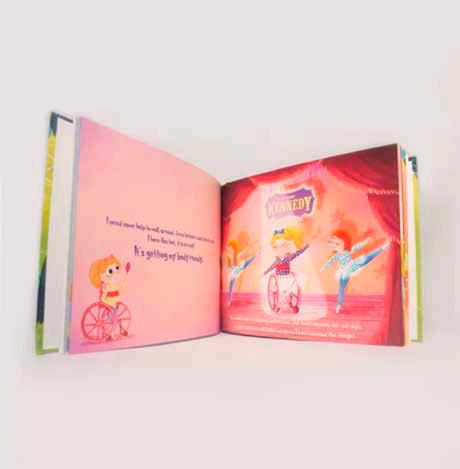
More children with complex medical needs are able to attend general education classes and engage with their peers. Helping kids understand that these types of devices or equipment assist someone and that they can still play, have fun, and be part of their community is crucial. The book is available for purchase on Etsy. The author also offers a companion coloring book, printable valentines, and printable valentines that kids can color themselves.



BY ANGIE ARLINGTON

I have lived with hearing issues all of my life. As a child, I had over 4 sets of stationary ear tubes put in my ears. I remember whispering too loudly and getting my “good worker paper” taken away often. In high school, I had to have my right eardrum repaired by taking skin from behind my ear to close the hole. I have always had difficulty understanding people with accents or who mumble. When people talk the sound carries in the direction they are facing. So when people turn away from me, I do not always hear every word spoken. I can read lips enough to follow along if I need to, but it is difficult to follow if there are too many sounds around me!
In 2014, I had my hearing tested and found that I needed hearing aids. When I started wearing my hearing aids, I heard sounds that I had never heard due to being very low or very high in frequency. My hearing aids were molded to cover my entire pathway to hearing, but I felt clogged throughout my ears and sinuses. I

wore my hearing aids for 2 years and then I could not tolerate them any more.
At the end of 2022, I had both of my ear drums burst and had bloody fluid come out of one of my ears. Even after 2 rounds of antibiotics, nasal spray, and prescription ear drops- it took 3 months for my ears drums to completely heal. Then in May of 2023, I woke up with thick yellowish puss coming out of my left ear. My ear popped a bit, but my hearing seemed to diminish. I was given more medications to clear the fluid behind my middle ears. But when I returned- my left ear still had a hole in my ear drum. The hole had not closed on its own and the 3 tiny bones that help move sound were not working property.
From my Journal starting 2023:
• August 3: Can hear the foreman grill sizzle, can hear the sound of the keys on my computer, can hear my voicewhich even at a whisper is so loud! Volume 100 on my TV was not loud enough to hear- now I can hear it fine
at 30! I could hear my dishwasher softly, but now it sounds like a waterfall. My air conditioner outside is loud- can’t believe I could not hear it. Rustling of paper is distracting.
• Sept. 2: I have noticed that the wind is very loud- my hearing aids seem to amplify the wind and I have noticed that I can not hear people talking to me when outside.
• Sept. 18th: I have tympanoplasty surgery- where the surgeon makes a curved incision behind your auricle, which is the crease in your outer ear. They used that to repair the hole. Then, the doctor put packing under and above my ear drum. It is so hard not being able to hear again in my left ear. It will be nearly Christmas, before I will know the true outcome. At least I have my hearing aid to wear in my right ear to hear- without it I would not hear much of anything!
• Sept. 26th: I keep answering my phone putting it up to my left ear! Never realized how natural
that action was until now. I have noticed that I can hear people much better from 10 feet away compared to standing in front of me.
• October: Start to be able to use hearing aid in ear and can hear.
• November: Sick with cold/flu thing- hearing decreases- can barely hear with hearing aid.
• December: Fluid behind ear- no infection. Eardrum looks good, but Tympanometry results are flat in my left ear.
2024
• Feb. 1: Results of the hearing test basically the same- Tympanometry in the left ear is flat. I am tired all the time, struggling to hear.
• March 6: CT scan on ear, ENT consult, and I agree to surgery. He tells me, “I think it is only thickened on the outer part of the eardrum, but will see how it looks on the opposite end of the eardrum in surgery.”
• May 3: Surgery to remove Cholesteatoma- abnormal accumulation and pocketing of dead cells in the eardrum
• May 4-5: Energetic, no pain, no dizziness
• May 10: Post op appointmenteardrum looks good

Do you or someone you love suffer from ADHD, Anxiety or Emotional Dysregulation? Let Us Help You Explore Your Options.
Schedule a consultation today!
• May 18: Can’t hear between both earseven with a hearing aid in my right ear. Outside is hard. Takes a lot of energy to focus and trouble sleeping due to rolling over on the left ear. Start ear drops for 2 weeks to dissolve packing.
• June 14: Returned to ENT to remove the packing left in my ear and I could hear her talk!!!
• July 14: Hearing is good, but wearing both hearing aids is so loud and gives me a headache. Do not have to put the TV or radio in the car on full blast to hear it.
• August 14 Hearing test taken and both of my ears have the same vibration pattern! My hearing has gone back to where it was before December of 2022!
If you have hearing loss, you should have your hearing tested at least every other year. This was an abbreviated version of my journey to help educate and raise awareness of living with hearing loss. I know many people who are hard of hearing or deaf and their individual stories are theirs to share. Thankfully, babies are tested at birth for hearing concerns. If the test shows anything, families are referred to the Center for Deaf and Hard of Hearing Education for early interventions services.
Vocabulary:
• Eardrum: K nown as the tympanic membrane, the eardrum is a thin, semi-transparent membranous wall that stretches across the ear canal and separates the outer ear from the middle ear.
• Inner ear: The third (innermost) section of the ear where sound vibrations and balance signals are transformed into nerve impulses. The inner ear contains the cochlea (organ of hearing) and the labyrinth or vestibular system (the organ of balance).
• Middle ear: Part of the ear that contains three tiny bones (called ossicles)—malleus (hammer), incus (anvil) and stapes (stirrup)—that conduct sound from the eardrum to the inner ear via the oval window.
Resources:
Hearing Loss Association of America (HLAA) www.hearingloss.org/ Hear Indiana www.hearindiana.org
Center for Deaf & Hard of Hearing Education (CHECKED) Provides the full continuum of communication options to ensure children who are Deaf and/or Hard of Hearing from birth to 21 years old in the state of Indiana. www.cdhhe.isdh.in.org

Neurofeedback is a non-drug, non-invasive solution to symptoms related to brainwave dysregulation. It's natural and offers a fix to the problem, not just a bandage that masks the symptoms.
"We followed the same path most of the other autism parents do with GFCF, DAN Dr., supplements, HBOT. What really made a difference in our son’s attention span, executive processing skills, and anger management was neurofeedback through INDY Neurofeedback."
~Maria S. (parent)

BY ANGIE ARLINGTON
Audiogram Testing-During testing, the audiometer delivers various “pure tone” sounds at particular frequencies and intensities, from low to high.The hearing test results are plotted on a graph with the y-axis representing hearing threshold and the x-axis representing frequency.
1. The right ear is generally plotted with an O and the left ear with an X.
2. Bone conduction is also plotted (to allow for differentiation of conductive and SNHL). The right ear is plotted as < and the left ear as >.
3. Air conduction: The results for each ear, measured using headphones or earphones.
4. Bone conduction: The results for each ear, measured using a special headband.
5. Threshold shifts: The patterns of threshold shifts between air and bone conduction.
Decibel (dB)- A decibel, or its abbreviation dB, is a measurement of loudness that ranges from the threshold of hearing. To put decibels in context, the volume of normal conversation is about 60dB and the roar of a jet engine is at least 120dB.
Frequency: The pitch of a sound, measured in Hertz (Hz). Low-pitched sounds are on the left side of the graph, and high-pitched sounds are on the right side. The average human can hear between 20 and 20,000 Hz and speech usually falls between 250Hz and 6,000 Hz. Audiograms typically test frequencies between 250 Hz and 8,000 Hz.
Speech Audiometry- measures a person’s ability to understand speech. Wearing headphones in a soundproof room, a person listens to a list of words spoken at different volumes and repeat what is heard.
• Speech reception threshold (SRT): The lowest volume at which a person can understand 50% of words.
• Speech discrimination: Ability to understand speech at a comfortable listening level.
• Speech banana- used on audio-gram to show problems with speech clarity due to hearing loss.
Tympanometry- diagnostic test that measures the function of the middle ear, specifically the eardrum (tympanic membrane). A small probe is inserted into the ear canal and generates a series of air pressure changes, and the eardrum’s response. The results are displayed as a graph called a tympanogram. The shape of the graph indicates the condition of the middle ear:
• Normal tympanogram: A peak is present, indicating that the eardrum is moving normally in response to pressure changes.
• Flat tympanogram: This may indicate fluid buildup in the middle ear.
• Stiff tympanogram: This may indicate scarring or other conditions that restrict the eardrum’s movement.

0-25 Normal: Able to hear sounds and speech sounds in the “banana”.
20-40 Mild: Unable to hear soft sounds. Can hear conversations in a quiet setting, but may have difficulty in noisy environments.
41-55 Moderate: difficulty hearing some quieter conversations.
56-70 Moderately Severe: difficulty hearing normal conversation. may lip-read or use hearing aids.
71-90 Severe: can understand speech only if the speaker is very close.
>90 Profound: typically cannot understand speech and unable to hear ‘loud’ stimuli such as lawn mowers.
Conductive hearing loss- hearing loss arising in the external ear canal, ear drum or middle ear. It refers to anything that blocks the passage of sound through the outer and/or middle ear. Conductive hearing losses are more likely to be correctable with surgery, than sensorineural hearing loss.
Midrange hearing loss- when a person can’t hear mid-pitch sounds, also called “cookie-bite” hearing loss.
Mixed hearing loss - hearing loss that has both conductive and sensorineural components.
Sensorineural hearing loss- hearing loss caused by damage to the sensory cells and/ or nerve fibers of the inner ear. The most common type of hearing loss in adulthood. In the United States, the most common cause is due to chronic noise exposure.
Unilateral hearing loss- Hearing loss in one ear only.
CELEBRATE WITH US!

Sharing photos of life’s milestones in Uniquely You! Magazine is a beautiful way to celebrate the essence of special moments and memories. Whether it’s a first step, graduation, vacation, or any cherished occasion, each photo tells a unique story of joy and achievement. It’s a chance to share these meaningful experiences with others who can appreciate and celebrate each journey.
We are also celebrating June, July and August Awareness Months, inviting you to share a photo that captures a special moment related to that month. Customize your caption to highlight the moment’s meaning to your family.



BY CYNTHIA SIBANDA RN, BSN, CEO
MY NAME IS CYNTHIA SIBANDA. I am a wife, mother of five and the owner of Frontida Community Living, LLC. When I first began my journey in healthcare, I worked for 10 years as a Direct Support Caregiver or Certified Nurse’s Assistant (CNA) for a company that supports individuals with Developmental Disabilities and really enjoyed the experience. Unfortunately, I was in an abusive marriage at that time, and it ended in a traumatic divorce. I had no choice but to pick up the pieces and whatever little strength I had to take care of my 3 girls. I went back to college and became a registered nurse in the State of Indiana. I have been a nurse for the past 16 years and counting. My career in nursing has been very rewarding and l got the opportunity



to serve as a float pool nurse in various departments such as Neurology, Ortho, Renal, Med-Surg and Psych for local hospitals in the Indianapolis area. I worked throughout the COVID pandemic as a travel nurse as well. How I found my way back to desiring to work with individuals with Developmental Disabilities is an amazing journey.
At the time of my divorce, I left the marriage with nothing but my children. I didn’t want to be caught up in a fight with my ex-husband as I was very intimidated by him. Years later I was trying to purchase a house for my children and l, and I was informed that I could not because the home I once shared with my ex-husband was showing up on my credit as being late in payments and going into foreclosure. It was a shock to me because my ex-husband was financially stable and had always handled financial matters in our marriage! I had not talked

to my ex-husband in a long time, because he had made it clear that though we had shared custody of our children, he did not want anything to do with them. I tried to reach out to him on the phone to get some answers and he told me that he had moved on with his life and he couldn’t pay bills where he was and at the house as well. I went by the house and l was mortified at the state the house was in. It was in disrepair and looked like no one had lived in it for years. The walls and floors had molded due to water collecting under the house from a malfunctioning sump pump. A big tree in the yard had fallen on the house and was just laying there. As much as I didn’t want to be involved, I could not let the house go into foreclosure because I was trying to purchase my own home at the time, so I had to step in and fix the mess he had left behind. I did a whole rehab job on the house and got the payments caught up while in the
meantime trying to take care of our living expenses across town. I had no funding to do the rehab work. It was painfully accomplished, one paycheck at a time and it almost took the life out of me. But l had a dream to buy a home for my children, I could not give up.
In 2019, my children and I moved into our new home. It is the very home that we live in to this day. After signing the mortgage papers, any normal person would have sold the old home. We surely didn’t need it anymore. I had achieved the goal for my children. Why not get rid of the bad memories, the bad energy? For some odd reason, I could not bring myself to let the house go. It was a part of me. It told my story. Through my experience l came to understand that there are people in society who have disabilities that we can see, but most of us our disabilities are not visible or tangible. Our disabilities are emotional because of the things that we have gone through. At the end of the day,



there is no handicap that is better or easier than the other. However, I chose to use my disability to empower me to be more compassionate, to have the gift of listening to other people’s pain, and the ability to pause and pay attention. l owe it all to the journey l have been on in this life.
I am remarried now, to a wonderful, supportive man, Jabulani Sibanda. When I was pregnant with our son, Emmanuel, I felt the urge to give purpose to my pain. I felt God leading me to open the doors of the old house to individuals with disabilities. In a conversation I had with my Sister about what I was going to do after giving birth to my son, she told me that she could see me working with individuals with disabilities. She envisioned that l would enjoy that kind of work. What she did not know is that she was confirming what God had told me in the spirit. So, I registered Frontida Community Living, LLC and accepted the call. When Emmanuel was born, he was later diagnosed with autism and now I completely understand why God led me on this path. I know firsthand the concerns, fears and difficulties faced by the people we serve and their families. I look forward to being a part of the solution. Frontida Community Living is more than just a place to live- it is a place where people with developmental disabilities can thrive. We focus on building a home with empathy, respect and understanding. To empower disabled individuals to live fulfilled lives through person-centered support, fostering a sense of belonging, promoting independence, self-determination and quality of life.
Frontida Community Living, LLC is approved to provide services under the Indiana Medicaid Home and Community – Based Services Waiver Program. We are a new BDS waiver provider-meaning your loved ones will get more attention and the best care. Frontida Community Living LLC has achieved Systems Accreditation through the Centers of Quality Leadership (CQL). We provide services to adults with developmental disabilities that help them to live meaningful, fulfilled lives in their communities. We provide housing and we can also provide care in the comfort of your own home. We want to know what your dreams and aspirations are and help you to achieve those goals. It is our desire to also help individuals with disabilities


to be connected with family, friends and other people in the community and keep you active in your community. We not only want you to live, but we also want you to thrive. We have excellent caregivers waiting to care for you, and we are also flexible if you already have your own caregiver who is willing to join our team.
If you are looking for a place where your loved one can feel at home, receive the best care, we’d love to hear from you. Please don’t hesitate to reach out to schedule a tour or to learn more about our services and together we can come up with a plan that works for you. I can be reached at (463)309-1006 or email me at csibanda@FrontidaCommunityLiving. com. Thank you in advance for the opportunity to serve you.




The month of May is Indy 500! Noise cancelling headphones are a great de-stressor in loud settings.
(888) 506-4182 | specialized4u.com 621 N Central Ave, Connersville, IN 47331 specializedhomecareservices@gmail.com.
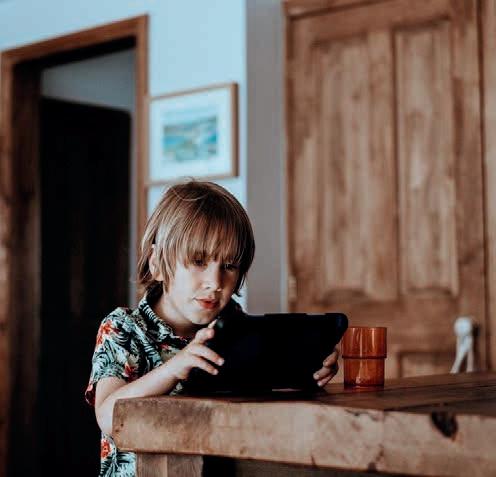



Sensory Blackout Tents are designed to create a calming environment for individuals, especially children, who may have sensory processing issues. These tents are beneficial for a sensory-friendly environment. They provide a quiet, dark, and enclosed area where children can relax and regulate their sensory systems. If your loved one receives waiver services in Indiana, ask us how we can help you get it funded!
Noise canceling headphones can be used for music and phone calls, but they can also be used simply to drown out noise. This can be a huge help for individuals who have sensory problems or may need help focusing. The great thing about having noise canceling headphones is they can be used without bothering others. Whether you need sounds that keep you grounded or you need to tune out external noises, you can put on your headphones and enjoy! RUTH ROBERTS AT SPECIALIZED HOME CARE SERVICES
Behavioral supports are an array of services designed to support individuals who are experiencing or are likely to experience challenges accessing and actively participating in the community as a result of behavioral, social, or emotional challenges.
317-366-3432 • NewBeginningsBIS.com 10614 Brixton Lane, Fishers, IN Assisting Families in Putting the

621 N Central Ave Connersville, IN 47331 ruth@specialized4u.com (317) 506-3143 Mobile (317) 348-0708 Fax

Spelling to Communicate is an innovative method of communication that starts with presuming in the cognitive competence of non, minimal and unreliably speaking individuals. It is believed that all individuals can and want to learn and communicate despite their perceived limitations. S2C empowers said individuals to overcome communication barriers through the motor movement of pointing to letters on a letter board and thus promoting synchrony between cognitive and motor systems. It is through the repeated practice (pointing to letters) that new neural pathways become formed and myelinated. The end result being a viable means of communication and the ability to show the world their cognitive prowess.
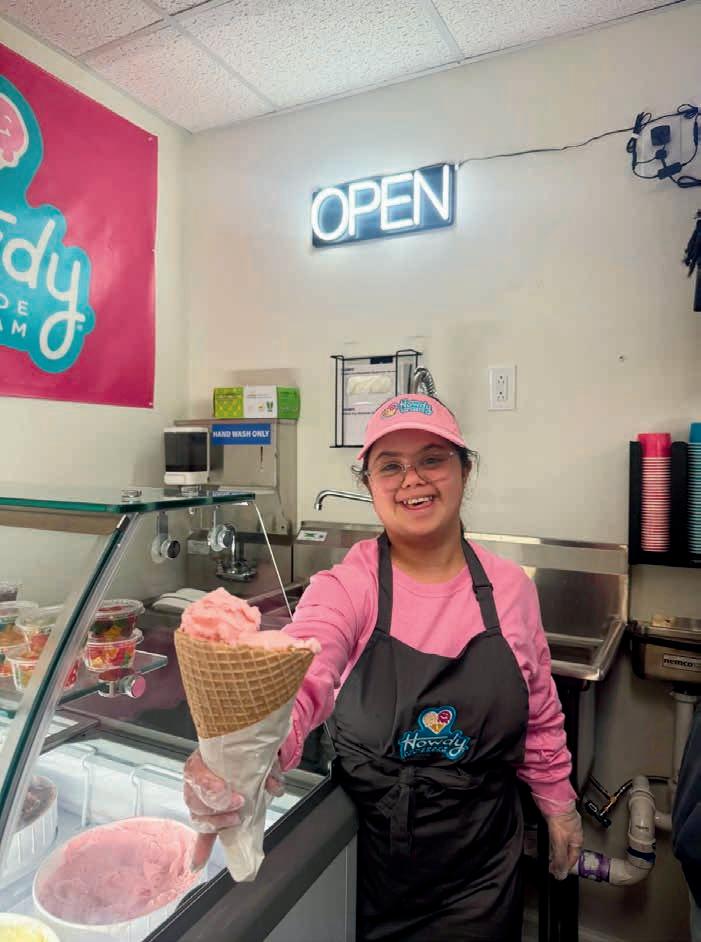



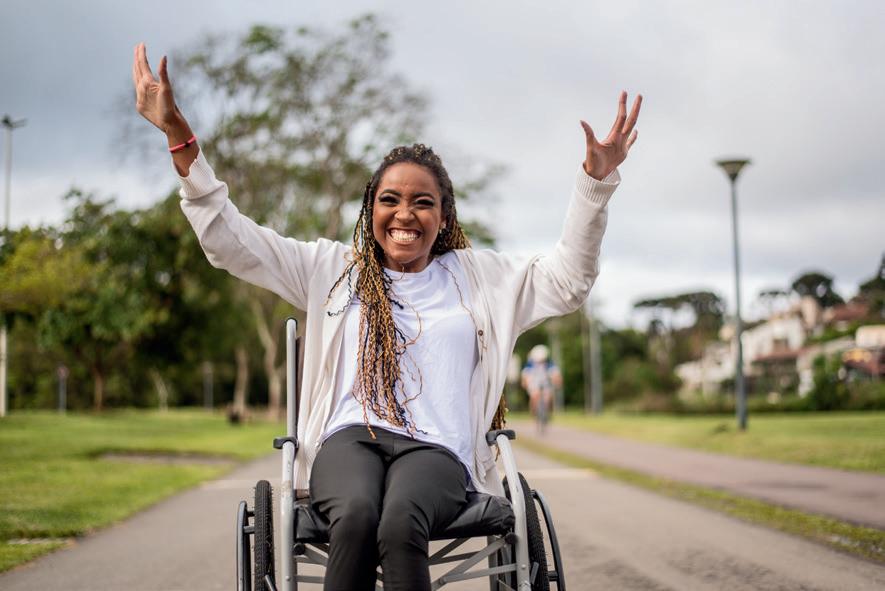


BY CHRISTINA MCGAIRK
Being a mom is a tough job—being a single mom is even tougher. But when you add the challenges of raising a child with special needs into the mix, the daily grind becomes an entirely different experience. Beth Heiny, a 48-year-old self-titled solo parent, knows this all too well. Her 11-year-old daughter, Emma, was diagnosed with autism spectrum disorder (ASD) at the age of 5. Since then, Beth has navigated the complexities of special education, therapy appointments, and the emotional rollercoaster of raising a child with unique needs—all on her own. Beth opened up about her experience as a special needs solo parent and shares her perspective on life and raising a child with unique needs.
Can you share a bit about your journey as a solo parent of a special needs child?
Our journey started in 2019 when my daughter, at age 5, was diagnosed with autism spectrum disorder, ADHD, OCD, and later generalized anxiety disorder. I’ve been a solo parent since she was a toddler. It’s just the two of us, and while there are challenges that come with solo parenting, having it be “just us girls” definitely has its benefits. I have the most amazing support system in my mother (Nana) and my very dear friends. We face these challenges together, lean on each other for advice, support, shoulders for those heavy tears, and encouragement— all in a safe, nonjudgmental environment. My daughter is loved and accepted by

some of the most absolutely amazing women in the world.
What are some of the biggest challenges you face daily, and how do you overcome them?
I think the biggest challenge, for me personally, is accepting her ASD diagnosis. I still struggle with the “what might have been,” jealousy of other moms, and sadness. My friends know I don’t like to sugarcoat things, and that applies to being a special-needs mother as well. Autism is hard. Seeing my daughter struggle to make and keep friends is excruciating. The amount of patience required to parent an 11-year-old girl with autism, as well as her other diagnoses, is staggering. But I wouldn’t trade her for the world. I see how far she has come and all the hard work she has done.
How has your relationship with your daughter shaped your perspective on life?
My daughter has changed me in more ways than I could have ever imagined. I am so much stronger than I ever thought I could be. Are there days when I want to crawl back into bed? Absolutely. But I think that happens with any parent. I take my time to grieve whatever milestone was missed or whatever is causing my sadness, get back up, and keep going. Because why wouldn’t I? She spends every day trying hard, and if she can do that, then there is no reason on earth why I can’t.
What does a typical day look like for you and your daughter?
School for her and work for me; behavior therapy, talk therapy, breathing treatments; medication research, pickup, drop-off, emails with therapists, physicians, and teachers; cooking, cleaning, laundry; navigating endless perseverations; reminding and repeating most things multiple times because she has very poor long-term, short-term, and

working memory. Bedtime is shower, meds, snuggling, and sweet dreams.
What inspired you to start your organization business?
It became crystal clear last year that American society is unable to adapt to the needs of special-needs parents. So, I got creative. I needed to support my family but also be able to take my daughter to therapy and other doctor appointments. I had to figure out a way to be available in case she needed to stay home from school to regulate if her anxiety was too high. Daycare for 5th graders after school isn’t an option at my daughter’s school, and the district denied my request last year for her to attend a school out of district. I’ve always enjoyed cleaning and organizing and have been told by countless people that I’m good at both. So that’s what I decided to do. Now, I’m home to either put her on the bus or drive her to school. I can pick her up at the end of the school day. She can stay home from school if needed. I don’t have to reschedule appointments. And I can also see my therapist while she is in school. I’ve met some amazing folks, donated services for silent auctions, and wake up every day happy to go to work while knowing that I’m in charge of my schedule.
What strategies do you use to manage stress and maintain your well-being?
I have my own therapist, whom I see weekly. My daughter receives behavior therapy and PAC services through her waiver, which gives me about three hours a week to get some things done that I can’t do with her. I clean and organize my home when I’m stressed; it lets me get out of my own head. I have plans to get either biweekly or monthly massages. I know I can call or text my close girlfriends, who live this life too, and say anything at all without being judged or criticized.
How do you build and maintain a support network for both you and your daughter?
This is a careful balancing act. While I think it’s very important to have people in our lives who understand autism, I think it’s just as important to balance that with neurotypical activities and make sure not everything in our lives is “autism-centric.” But, of course, my strongest support network is my girlfriends Erica, Melanie, J’Nai, Leigh, and Anne. We all have playdates together with the kids, sleepovers, dinners out without kids, and birthday celebrations for the kids and the moms. These women are my rock. We help each other, support each other, and lean on each other. The funny thing is that all of these women are almost exclusively “boy” moms, with the exception of one, and they love my daughter, even taking her out for “girly days” full of shopping and manis/pedis.





When I say I have the best friends in the world, I’m talking Oscar-worthy. I could write a doctoral dissertation on these women and the value they bring to both me and my daughter.
Are there any resources or services that have been particularly helpful for you as a single parent of a special needs child? Yes! Ausome Indy Moms! I have nothing but gratitude and love for the people in this group! My friends have been key. My daughter’s waiver opens up options that medical insurance won’t cover. My hope is that more companies and organizations will become providers for waiver services, as well as offer adequate staffing. The waiting lists are so long!
What are your hopes and dreams for your daughter’s future?
It’s very simple: I want her safe and happy. And I want her to have access to all services she is entitled to. I will be bold and say I demand laws be put in place to protect our vulnerable kiddos—laws that can never be repealed or changed in a way that takes away rights and/or services. I want bills passed and laws put into place that are concrete. I want to know that my daughter has every chance in the world!
What advice would you give to single moms of special needs children?
I received the best advice of my life on March 19, 2007, the day of my father’s funeral. It was, “You are allowed to feel


WHATEVER you want and NO ONE gets to criticize or judge you for it.”
This has been integral for the last 18 years of my life, especially on days when autism becomes too overwhelming. I haven’t reached the point where I can embrace my daughter’s diagnosis yet so when I have my moments of days of sheer devastation of what our lives are like and what her future could be, I remember that advice and it lifts me up.
Also, surround yourself and your child/ren with people who don’t make you apologize for, or justify, your child’s behaviors or delays or struggles. There is absolutely nothing wrong with picking and choosing with whom you interact, in ANY form.
One last piece of advice is only to take advice from other special needs parents because parents of neurotypical children, while having the best intentions, really have no idea of the difficulties and struggles we parents, and our child, experience.
BY CHRISTIA WOODFORD

Note: Don’t forget to apply for the Access Pass! The Access Pass Program allows families that meet the specific requirements listed below to visit The Children’s Museum of Indianapolis and all participating locations for $5 per family member per visit for up to two adults and all dependent youths living in the household. You qualify if you receive:
• Hoosier Healthwise Insurance (Indiana’s health care program for low-income families, pregnant women and children)
• SNAP (Supplemental Nutrition Assistance Program)
• TANF (Temporary Assistance for Needy Families)
• Apply here: https://www.childrensmuseum.org/visit/hours/ access-pass.
The Children’s Museum of Indianapolis Museum My Way An adaptive museum experience July 15, Oct. 14, Dec. 9, This special event is an opportunity for visitors with disabilities and/or sensory sensitivities to experience the museum in a new way. Families and groups of all abilities are welcome to play and learn together!
• Limited capacity
• Quiet area with sensory items.
• Some music is turned down or off.
• Edited lighting effects in some areas.
Tickets go on sale 6 weeks before events https://www. childrensmuseum.org/museum-my-way
First Thursday Night- First Thursday every month
May 1, 4:00 pm
On the first Thursday of every month, we open our doors from 4–8 p.m. for just $6 admission per person! Why should you visit? Admission is just $6 per person for the entire museum. That’s a savings of more than 75% per ticket!
It’s the ONLY time the museum is open to the public in the evening, so it’s a perfect after-hours night for your family.
• It’s not as crowded as you might think! We have limited capacity on First Thursday Nights.
• Parking is always free!
Our Food Court is open, so you can grab a quick and easy dinner for the whole family. Low cost. Low crowds. Late night play! https:// www.childrensmuseum.org/visit/calendar/event/273
Various Events
May 1- May 31, Opens at 10 AM
3000 N. Meridian St., Indianapolis, IN 46208, 317-334-4000 https://www.childrensmuseum.org
Conner Prairie — Indiana’s Living History Museum
ROSÉ AND ROSES
May 9, 6:00 pm- 8:30 pm in Bayt Pavilion
Join us for Rosé and Roses, a Mother’s Day Ladies Night Out! This 21+ event includes a wine tasting with Oliver Winery. Enjoy a fun selection of desserts throughout the evening. Cash bar available with Moscato flights and frozen wine slushies. Other activities include mindfulness meditation, nature walks, yoga sessions and a photo backdrop to share with your following! Additionally, you can create your own flower arrangement that you can take home with you! Finish the night enjoying the beautiful sunset view over the prairie.
Celebrate Mother’s Day With An Amazing Brunch!
May 11, 10:00 am -1:00 pm in Featherston Barn
Celebrate that special person in your life by joining us for our Mother’s Day brunch. Relax, let us do the cooking, and make the day special with a delicious variety of items to choose from.
For tickets: https://www.connerprairie.org/explore/things-to-do/ mothers-day/#rose-and-roses
Sensory-Friendly Hours
The second Sunday of every month, from 10 AM to noon, are sensory-friendly hours at Conner Prairie! Enjoy a calm environment. Check-in with Guest Relations, stating that you are here for sensory-friendly hours. You will get free admission and may stay as long as you wish.
Various events
May 1 -May 31, 10:00 am- 10:00 pm 13400 Allisonville Road, Fishers, IN 46038. Phone: 317-776-6000 or 800-966-1836 https://www.connerprairie.org/events/list
Tangram Social Clubs 5155 Pennwood Drive,Indianapolis, IN
Tangram offers a variety of social clubs for everyone to enjoy! Whether you’re into games, books, or advocacy, there’s something for everyone—and it’s all free!
• Bingo - 1st & 3rd Mondays @ 6PM: Play a classic game of bingo and connect with friends!
• Self Advocates - 3rd Thursday @ 6-7PM: Discuss selfadvocacy topics and empower yourself with like-minded peers.
• Game Night - 3rd Tuesday @ 6PM: Card games, board games, and more! Feel free to bring your favorites too!
• Book Club - 2nd & 4th Mondays @ 6PM: Read and books with a fresh pick each quarter!

Check out the schedule below and join us for some fun, learning, and great conversations. We can’t wait to see you there! For more information about Tangram’s clubs, please email jrice@ thetangramway.org.
#TangramClubs #CommunityConnection #InclusiveFun #JoinUs #TheTangramWay
Sensory Friendly Play at Urban Air Noblesville
May 4, 9:00 am- 11:00 am
14450 Mundy Dr, Noblesville, IN 46060
Urban Air’s Sensory Friendly Play day is typically held on the first Sunday of the month. Check the Noblesville calendar for the latest info. https://calendar.google.com/calendar/u/0/ embed?src=hi8j9brk94jgnc71kmslc13js8@group.calendar.google.
Sky Zone South Sensory Play
May 5, 5:00 pm- 7:00 pm Every month first Monday of the month Sensory Fun Fridays runs every Friday from 9:00am-10:00am. 4150 Kildeer Dr, Indianapolis, IN 46237
Jump and socialize in a comfortable, friendly environment. Enjoy the freedom of jumping. Sensory hours provide a quieter, toneddown jumping experience for those with special needs. https://www.skyzone.com/programs/sensory-hours/
Indianapolis Zoo
Join us for the 45th Annual Zoopolis 500!
May 21, 10:00 Am- 12:00 Pm
This unique annual event and race-fan favorite includes a morning of family-friendly festivities leading up to the “Greatest Spectacle in Tortoise Racing.”
come in, meet 500 Festival Princesses and snap 500 Festival pace car and the giant milk jug, then Bicentennial Pavilion for the pre-race festivities. Plus, Dairy Association Indiana, Inc. will be handing out chocolate milk (while supplies last). Make sure to meet a snake at the Snake Pit.
For tickets: https://www.indianapoliszoo.com/zoo-events/
Various events scheduled daily.May 1 through May 31
1200 West Washington St. Indianapolis, IN 46222
https://www.indianapoliszoo.com/
AMC Theatres
Check website for location, date and times.
AMC is proud to partner with the Autism Society to offer unique movie showings where we turn the lights up, and turn the sound down, so you can get up, dance, walk, shout or sing! Our Sensory Friendly Film program is available on the second and fourth Saturday (family-friendly) and Wednesday evenings (mature audiences) of every month.
Please check your local theatre listings for specific showtimes, and don’t forget to share your family fun with #AMCSensoryFriendly. https://www.amctheatres.com/programs/ sensory-friendly-films
Adaptive Dance
May 1, 5:00 pm- 6:00 pm Every first Thursday through May 2025 the Arc of Hancock County, 8535 N Clearview Dr, McCordsville, IN 46055
We are proud to announce that we received a mini-grant from the Community Foundation of Hancock County to turn our Adaptive Dance (Body Rock) classes from March and April into a regular monthly program. These classes will be held at Hancock Wellness Center - McCordsville in the Community Room every first Thursday of the month from August 2024 through May 2025 from 5:00-6:00pm. This class is free, but you must be registered. Parents of participants under 18 years old must be present. We cannot wait to see you there! Please use the link to register: https:// arcofhcadaptivedance.eventbrite.com
Beef and Boards Church Basement Ladies Apr. 17- May 18
The Little Mermaid
May 22- July 13
9301 Michigan Rd, Indianapolis, IN 46268 https://beefandboards.com/Online/default.asp
Sensory-Friendly Performance of “Polkadots: The Cool Kids Musical”
May 11, 1:00 pm- 2:00 pm 122 S Walnut St, Bloomington, IN 47404
8-year-old Lily Polkadot just moved to the small, “Squares Only” town of Rockaway. As the first Polkadot in an all Square school, Lily faces an almost impossible task of gaining acceptance from her peers. Lily’s quest seems hopeless until she meets Sky, a shy Square boy whose curiosity for her polkadot skin blooms into an unexpected friendship. Inspired by the events of The Little Rock 9, Polkadots serves as a colorful history lesson that reminds us that our individual differences are what make us cool. Fun for all ages! Constellation offers select sensory-friendly performances for our Constellation for Kids series. This special performance is designed to create a theater experience that is welcoming to all families with children with autism or other sensory sensitivities. Tickets to Constellation’s Sensory-Friendly performances are Pay What You Will, meaning you get to choose your own ticket price (from $5-$75). For Tickets: https://seeconstellation.org/ kids/polkadots/
Jubilate Choir
Butler University, Lilly Hall, Room 133 Wednesdays, 6:45-7:30 PM
The Jubilate Choir is for singers with special needs in grades 3-9. Singers with varying abilities meet each week to grow musically. This tuition-free choir focuses on proper singing techniques, music theory and sight-reading, part-singing, and social skills involved in being a member of a musical ensemble.
Though Jubilate has, at its core, the same goals as other choirs in the Indianapolis Children’s Choir (ICC), singers in Jubilate engage in additional activities like visual and tactile experiences that are catered specifically to the current members of the choir.
Director: Lauren Southard
For more information, contact Lauren Southard at 317-940-8065 or lsouthar@icchoir.org. https://icchoir.org/ special-needs/
Gigi’s Playhouse
Various classes during the week. 5909 E. 86th St., Indianapolis, IN 46250 317-288-8235 indy@gigisplayhouse.org https://gigisplayhouse.org/indianapolis/ sfcalendar/


EVENTS
Uniquely You - Special Needs Moms & Caregivers Weekend Retreat
May 2-4
Teter Organic Farms & Retreat Center, 10980 E 221st St, Noblesville, IN
Moms and caregivers of special needs individuals, this weekend is just for YOU! Escape the daily hustle and treat yourself to a transformative retreat designed to refresh your body, mind, and soul.
What to Expect:
• Healing and mindfulness workshops
• Art activities
• Make-and-take flower arrangements
• Nature hikes
• Campfire gatherings
• Music and yoga sessions
• and so much more!
Choose how to spend your time—engage in all the activities or simply relax and recharge.
What’s Included:
• Two nights at our beautiful retreat center (Fri & Sat).
• Meals: Dinner (Fri), breakfast, lunch & dinner (Sat), breakfast (Sun).
All activities, workshops, and your own flower arrangement. Cozy accommodations: 4 rooms with private showers, each holding 6 ladies (bunk bed style).
Special Offer:
• Pre-registration: $229 per ticket (ends March 30th)
• Regular price: $279
• Group Option: Have a group of 6? Reserve a room together for an even more memorable experience!
• Important: Space is limited to 24 ladies. No childcare will be provided, so please make prior arrangements.
• This is your time to fill your cup, connect with other amazing moms and caregivers, and nurture yourself. You deserve it!
Register Now: https://buytickets.at/uniquelyyou/1540455
Center Stage: Fort Wayne’s Premier Talent Show
May 3, 6:00 pm- 7:00 pm 1808 Bluffton Rd, Fort Wayne, IN 46809
Back by popular demand for its fourth year, “Center Stage: Fort Wayne’s Premier Talent Show” at the Clyde Theatre, will feature local performing artists of all talents and abilities. Turnstone Center believes in a people-first approach to empowerment and celebrating talent-first opportunities. “Center Stage” is a first-ofits-kind talent experience in our community, elevating talent and performing arts for all people with and without disabilities.
All proceeds from this event go towards Turnstone’s mission of empowering people with disabilities. https://turnstone.org/about/ events/center-stage-fort-waynes-premier-talent-show
Thrive 85- Family Fun and Resources in Wabash
May 4, 2:00 pm- 5:00 pm
Wabash County Fairgrounds, Gillen Ave, Wabash, In 46992
Thrive 85 is a FREE community event designed to help connect individuals and families in need to resources in the community. Thrive 85 was designed to meet some of the immediate needs of those in our community and to help connect individuals and families to available resources so that they can begin their journey towards Thriving in Wabash County.
It will be a fun-filled, impactful evening and we are so excited to be able to offer this event completely FREE to those in our community! Please help us spread the word by sharing this information with anyone you feel could benefit from this event. There will be activities, giveaways, and food trucks.
Ask The Arc Webinars Series
May 8, 6:00pm- 7:00 pm
Our Ask The Arc webinar series will provide information and discussion on timely topics relevant to people with intellectual and developmental disabilities, their families, and their support systems.
Webinars take place on the 2nd Thursday of the month at 6:00 p.m. EST. Past webinars will be recorded and posted to view on your own schedule in The Arc of Indiana Academy and on our YouTube channel.
Registration is for the complete webinar series. You can pick and choose which ones you want to attend without having to register each time. https://us06web.zoom.us/webinar/register/ WN_hTnwxka_S--MknIpiQoNrA#/registration
2025 Disabilities Expo- Fort Wayne
May 10, 10:00 am- 3:00 pm
Allen County War Memorial Coliseum, 4000 Parnell Ave, Fort Wayne, IN 46805
We look forward to seeing you at the 14th annual Disabilities Expo! This day has been planned just for you with more than 138 exhibitors to make this event a one-stop resource for all types of disability services and products. We hope that you find what you need, and even more importantly, discover new resources to enhance your quality of life. Whether you are an individual with a disability, a family member, friend, caregiver or professional, the Disabilities Expo exists to support your needs.
The Expo is also filled with fun and entertaining activities, spectacular adaptive sports exhibitions, musical groups, and special guests making a difference in the disability world. It’s a welcoming environment with so much to see, learn and do. You are sure to be glad you attended.
Helping you explore opportunities, expand possibilities and experience everything is what the Disabilities Expo is all about. Spend a few hours or the entire day…everyone will be glad you are here! For more information: https://disabilitiesexpoindiana.org/
Is there a local event for the special needs community you would like us to promote in an upcoming issue? Email us at SpecialNeedsIndy@n2pub.com.
This section is here to give our readers easier access when searching for a trusted neighborhood partner to use. Get to know the businesses that make this magazine possible. Please support them in return and thank them if you get the chance!
ABA & COMPREHENSIVE SERVICES
BehaviorWorks ABA (317) 731-7777 behaviorworksaba.com
K1ds Count Therapy (317) 520-4748
ABA / RESIDENTIAL & COMMUNITY SUPPORT
Sycamore Services (317) 745-4715 sycamoreservices.com
Tangram www.TheTangramWay.org
ABA/COMPREHENSIVE SERVICES
The Hope Source (317) 578-0410
ATTORNEY-WILLS/TRUSTS/ ESTATE PLANNING
Law Office of Elizabeth A. Homes LLC (317) 660-5004
Stinson Law Firm (317) 622-8181 www.stinsonlawfirm.com
BEHAVIORAL SUPPORT/PAC
New Beginnings BIS (317) 366-3432
www.newbeginningsbis.com
CASE MANAGEMENT
Connections Case Management (317) 440-0637
CLEANING: RESIDENTIAL & COMMERCIAL
The Dust Devils (317) 709-6120
COMMUNITY SUPPORT
Achieve Community Services (317) 918-0337 acssupports.com/
AID of Indiana (765) 273-3999 aidofindiana.com/
Carters Play Place (317) 836-5510 cartersplayplace.com
LEL Home Services (317) 387-1443 lelhomeservices.com Noble (317) 375-2700
Phoenix Community Services LLC (765) 622-7808 www.Phoenixcommser.com
EMPLOYMENT/COMMUNITY SUPPORT Hopewell Center (765) 642-0201 www.hopewellcenter.org





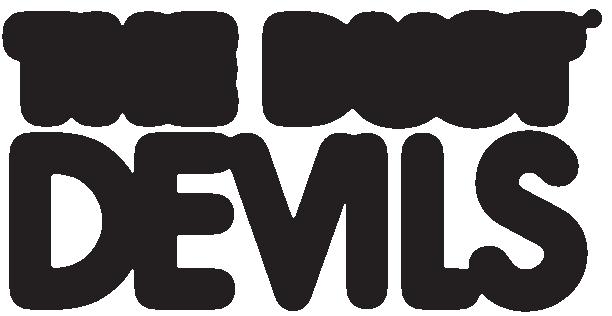


FINANCIAL
WestPoint Financial Group
Gordon Homes (317) 567-2005
HOME CARE & TRANSPORTATION
ABC Community Services LLC (317) 516-1178 www.abccommunityservices.com
HOME HEALTH SERVICES
ComForCare Home Care (317) 575-3983 www.comforcare.com/indiana/ north-metro-indianapolis
HOME MODIFICATIONS / SPECIALTY EQUIPMENT
Specialized Home Care Services (888) 506-4182 www.specialized4u.com/
HOUSING/TRANSPORTATION/ PAC/RESPITE
JD Angels Family Care (317) 654-2609
ICE CREAM
Howdy Homemade Ice Cream (317) 397-0008 www.howdyindy.com
INSURANCE
State Farm
John Cole (317) 430-1958
KID’S SENSORY GYM
Rock the Spectrum (317) 764-6607 werockthespectrumcarmel.com/
MEDICAL EQUIPMENT & PHARMACY
George’s Pharmacy & Medical Equipment (855) 600-6251 www.georgespharmacy.com
MICROSCHOOL / TUTORING
Sunrise Learning Academy (317) 245-7052
www.sunriselearningacademy.org
MUSIC THERAPY
Dynamic Music Therapy (317) 829-6654
NEUROFEEDBACK THERAPY
Indy Neurofeedback (317) 888-8500
PEDIATRIC HOME CARE
Guardian Care www.myguardian.care
SCHOOL
Dynamic Minds Academy (317) 578-0410
SPELLING TO COMMUNICATE
Exceptional Minds LLC (317) 408-3990

Music
Early
&



Music Therapy can help individuals of all ages and abilities, including those with: Alzheimer’s Disease and Dementia ° Autism ° Cerebral palsy
Developmental Disabilities ° Down Syndrome
End-of-life care (Hospice) ° Intellectual Disabilities
Mental health ° Neurological disorders
Psychiatric disorders ° Rehabilitation

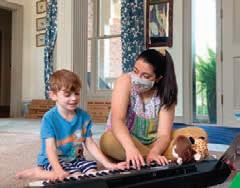
SUPPORT SERVICES
My Quillo (317) 626-4387 myquillo.com/
WAIVER PROVIDER & EMPLOYMENT
Putnam County Comprehensive Services (765) 653-9763 www.pccsinc.org
WAIVER PROVIDER / HOUSING
Frontida Community Living (463) 309-1006 www.frontidacommunityliving.com 7502 Madison Ave, Indianapolis, IN 46227 (317) 829-6654




The JD Angels Family Care program is dedicated to providing comprehensive services and resources for individuals with intellectual disabilities. We support clients who are disabled, handicapped, elderly, or senior citizens. Our mission is to enhance clients' interpersonal skills, abilities, living conditions, mental well-being, and daily living skills.

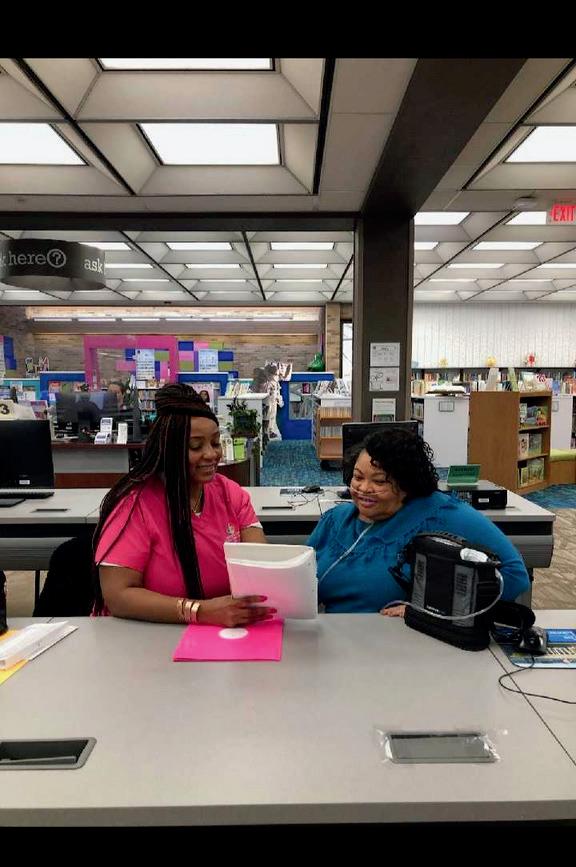
We specialize in offering luxury housing within our wellness program to ensure a safe, clean, and stimulating environment that promotes mental health and overall well-being. Our primary goals are to improve clients' social skills, daily living abilities, and service plans while respecting their rights, responsibilities, and treatment plans.












Personal Hygiene & Grooming
Dressing & Undressing
Meal Preparation
Mobility & Transfers
Toileting Assistance
Housekeeping
Laundry
Home Safety
Companionship
Medication Management
Social Skills Development

Operational Manager-Latia Tunstall +317-654-2609
jdangelfamilycare@gmail.com
https://www.linkedin.com/in/k-king--1818a22b6
